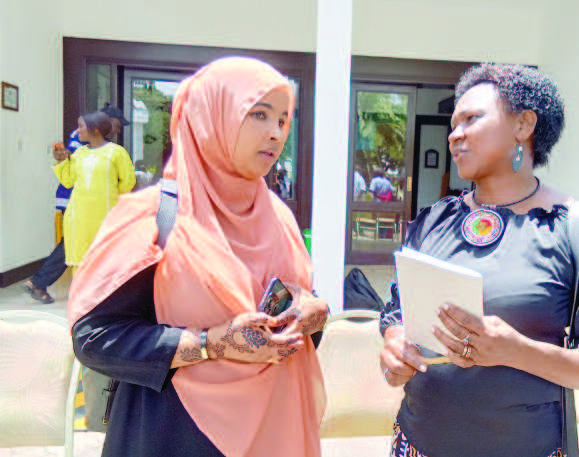Rights agency seeks more money to run effectively

The Kenya National Commission on Human Rights (KNCHR) has warned that its critical functions are on the verge of grinding to a halt as a result of inadequate funding.
Appearing before the National Assembly’s Justice and Legal Affairs Committee (JLAC) at a Mombasa hotel, the commission, led by chairperson Roselyne Odede, said KNCHR has been allocated Sh523.46 million in the 2024 budget policy statement for the Financial Year 2024/25, a figure she termed as “insufficient” for their operations.
“This comprises Sh351.93 million for compensation to employees and Sh171.53 million for other operating expenses. The Sh523.46 million will not be sufficient to cater for all the needs of the organisations,” Odede told the committee chaired by Tharaka MP George Gitonga Murugara.
According to Odede, the commission requires a funding of Sh992.81 million to operate optimally in the current FY.
In response to a sustained tough line of questioning from curious members of the JLAC, Odede and her team gave a blow by blow account of how the commission was virtually on its knees as a result of unfunded critical areas.
Some of the commission’s key functions that have been affected by the situation include complaints handling and investigations of Human Rights, Research and Compliance, Prison Visits and inspections, Public education and training among others.
Human Capital and commission’s subsequent presence across the country has also been drastically affected, according to Odede.
She urged the committee to come to their rescue, noting that the financial crisis was putting their critical functions in jeopardy and at the same time exposing the public to human rights violations.
Foreign trip
“We have 125 staff members against an approved staff establishment of 461 translating to just 27 per cent. We are only able to cover a few areas. The remaining areas that are uncovered means they continually are marginalised on human rights,” Odede told JLAC.
While noting the commission was keen at devolving services so that they can enhance service delivery.
“By devolving services, we believe reporting on human rights violations will be bolstered.
We have realised that this country is vast and some regions have limited connectivity. In setting up offices, comes the issue of transportation. We can set up but we also need to move around.”
Committee had questioned the commission’s visibility and ground presence amidst concerns of their “Armchair approach” rather than hands-on. For instance, the Committee wondered how the commission reacted to the case of Shakahola starvation cult massacre.
“Regarding Shakahola everyone is asking where were you when all this was happening in the name of religion. I think it is time you move in and interrogate what is going on,” Murugara said.
But on his part, Rarieda MP Otiende Amollo told the committee to be more proactive, noting that for it to attract funding; the committee must improve its visibility on the ground.
“You are coming at a time when constitutional commissions are under attack. Your funding will be commensurate to your visibility,” Amollo told the committee in Mombasa
On the issue of Shakahola, Odede noted there was a need to reconsider religion. “I think we need to do a public hearing on commercialisation of religion,” she said.









